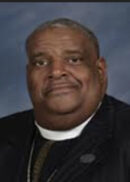Guest Commentary: Protest punishments are clear racial discrimination
Now for some background.
As most Americans know, the captured-on-video death last May of George Floyd at the hands of Minneapolis police officers precipitated a wave of nationwide protests unseen since the civil-rights movement of the 1960s. But unlike the 1960s, this time far more non-Blacks came out to show their solidarity with their brothers and sisters of color concerning police brutality.
The protests were overwhelmingly peaceful. But not totally. In some cases — perpetrated by a relative few, some of whom had no relationship to the Black Lives Matter movement — businesses were looted, property destroyed, bodily injury inflicted.
I stated in an op-ed in the Orlando Sentinel at the time: “Criminal behavior should always be labeled for what it is: criminal. But the criminal behavior of a relatively small percentage of protesters should never be used to justify indifference toward our collective responsibility to secure ‘liberty and justice for all.’” I stand by those statements.
There have long been laws on the books in every state to deal with the criminal behaviors that marred last summer’s protests. But without even hinting at the crying need to address the underlying issues that led to those protests, SB 484 and HB 1 call for a whole range of additional prohibitions, new definitions and enhanced penalties that put at potential legal risk all who participate in a protest, however peaceful their intentions.
The bills not only punish actual offenders more severely but intimidate would-be protesters.
Swisher states: “Already-illegal acts would be subject to harsher punishments if committed ‘in furtherance of a riot,’” according to a Sun Sentinel story reprinted in the Orlando Sentinel on Jan. 19 (”’Anti-riot’ plan to get tough on violence”). “For instance, a burglary committed by a rioter would be elevated from a third-degree felony, punishable by up to five years in prison, to a second-degree felony, punishable by up to 15 years in prison. …
“The legislation defines rioting as a public disturbance of at least three people with a ‘common intent to mutually assist each other in disorderly and violent conduct.’ …Rioting is a third-degree felony, while aggravated rioting would be classified as a second-degree felony.” And there’s much more.
In the 1860s, recently freed slaves recognized the power of the ballot box. And ever since then, a white contingent has sought to curtail that power. In the 1960s, Blacks recognized the power of peaceful protest. And ever since then, a white contingent has sought to curtail that power.
Wherever and whenever possible, such curtailing has been hidden behind some plausible deniability of discrimination. The substance of the two legislative bills in question, which was initially openly presented as a response to the summer of protest, has since Jan. 6 been conveniently repackaged as a necessary response to the invasion of our nation’s Capitol.
What a windfall! Clearly no discrimination here.
Rev. Dr. James Morris is pastor of the Carter Tabernacle CME Church in Orlando, the Presiding Elder of the CME’s Central Florida District and a former Vice Chair of the Board of the Interfaith Council of Central Florida.

